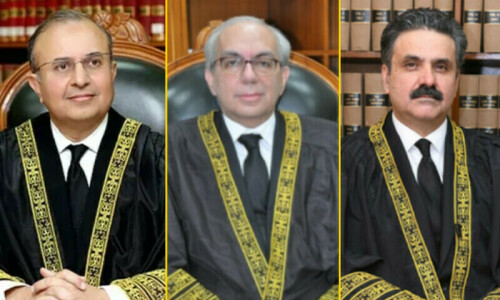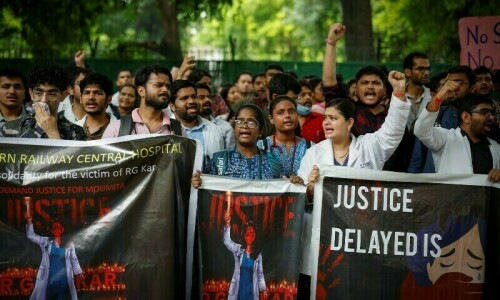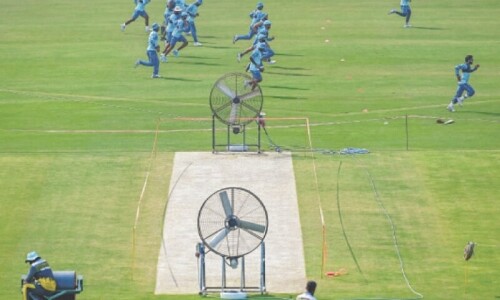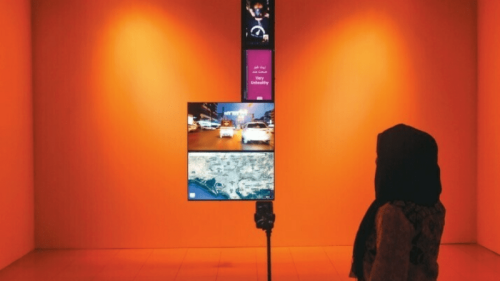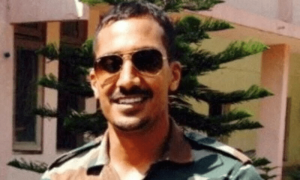ISLAMABAD: The Supreme Court has been asked to reconsider its 1999 verdict in the Sheikh Liaquat Hussain case which declared military courts unconstitutional.
In a petition filed before the apex court on Saturday, regular litigant and Awami Himayat Tehreek Chairman Maulvi Iqbal Haider has asked the court to empower the government – in view of the prevailing circumstances – to make laws or promulgate ordinances to establish military courts in order to help civil authorities curb terrorism and militancy.
The petitioner argued that there was nothing in Articles 4 through 25 of the constitution – which relate to fundamental rights – that prohibits the setting up of military courts to try terrorists, if it helped the government to protect its citizens.
In 1999, a nine-judge Supreme Court bench, headed by then Chief Justice Ajmal Mian, had declared Ordinance No. XII of 1998, illegal. The ordinance was promulgated by the government of Nawaz Sharif and challenged in court by Sheikh Liaquat Hussain.
The ordinance sought to establish special military courts in Sindh in the wake of a wave of terrorism that haunted Karachi in the mid-90s.
Not only did the Supreme Court hold that military courts were illegal, but also laid down a set of guidelines with directions to entrust all terrorism-related cases to the anti terrorism courts (ATCs), formed under the Anti Terrorism Act (ATA) of 1997. The court had also ordered that ATCs only be assigned one case at a time and no other case be referred to them until a verdict was announced on the case at hand.
The guidelines also called upon the special courts to proceed on a day-to-day basis and deliver a verdict within seven days, as already provided in the ATA. The case challan, the guidelines said, should only be submitted once all necessary preparations were in place and that all witnesses should be produced as and when required by the ATC.
Any appeal arising out of an ATC order would also be heard by the appellate forum within seven days from the filing of appeal and any lapse on part of the investigating and prosecuting agencies shall entail immediate disciplinary action, the guidelines said.
Recently, sensing the gravity of the situation, Chief Justice Nasirul Mulk summoned a meeting of all provincial chief justices on Dec 24, where it was decided that terrorism cases would be given priority and would be heard on a daily basis.
But in his petition, Iqbal Haider has asked the court to issue a new set of guidelines after re-visiting the 1999 judgment, in the larger public interest. He claims that citizens are now hostage to the nefarious designs of terrorists, who strike anywhere at will, depriving citizens of their fundamental rights.
The current law and order situation has become so complex that without the assistance of the armed forces, it would be very difficult to ensure life, dignity, liberty, free movement and the security of citizens’ properties following the Peshawar tragedy of Dec 16.
The petitioner contends that until prosecuted by the military courts, those involved in the brutal murders of innocent people could not be brought to justice.
Published in Dawn, December 28th, 2014




